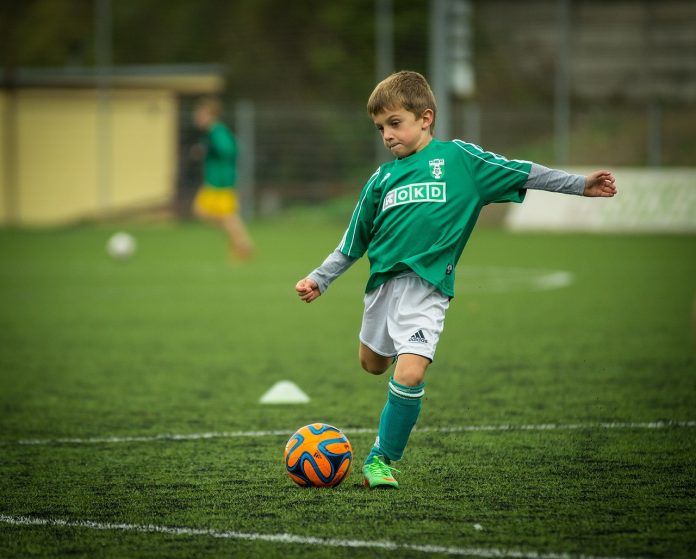Games and sports seem to be common features of human culture, both past, and present. Archaeological excavations have uncovered numerous artifacts from the games at sites around the world. These include equipment related to games of physical skill, such as balls and hoops, game boards, game pieces, and playing cards for strategy and dice games, used in games of chance. risk. Boards and pieces for games similar to checkers (draft in North American English) have been found in the ancient city of Ur in modern Iraq dating to about 3000 BC (Oxland 2004) and in Egypt dating from 600 BC (Masters 1997). ). The earliest sports or athletic games are known from archaeological and narrative sources. Various art forms, including painting and sculpture, from around the world often depict gameplay and sports. The Greek historian Herodotus (5th century BC) described games and other pastimes in Egypt and Lydia (modern-day western Turkey) while the Roman historian Tacitus ( AD 55-120) describes dice games among Germanic tribes.
What Defines A Game Versus A Sport?
Definitions are, by their very nature, arbitrary, but many interculturalists have accepted the following definitions and distinctions between game and sport:
Games are recreational activities “characterized by:
(1) organized play, (2) competition, (3) two or more parties, (4) criteria for determining winners, and (5) agreed rules” (Roberts, Arth) and Bush 1959, 597). Defined as such, games are most likely culturally universal. Below we summarize cross-cultural comparative research on issues related to games and sports. These include (1) Does the game provide models of important pragmatic aspects of culture? (2) Do games have anticipatory children’s education? and (3) Are games, particularly under the guise of sports, related to war?
Do games provide models of important pragmatic aspects of culture? A buzkashi game in Mazar-e-Sharif, Afghanistan. Sometimes as a team, buzkashi players fight to pull the carcass of a goat or calf toward the goal.
Although games can be cultural universes and interesting forms of human activity, why are they of real importance in human life, as they are often seen as non-productive and non-productive? just for fun?
For example, the Afghan game buzkashi provides excellent training in mounted warfare. Many strategy games, such as chess or Go (also known as Go), explicitly simulate war because they involve both capturing enemy troops and territory. The exclusive board game, involving both strategy and chance, models real estate transactions and became popular during the Great Depression of the 1930s. Finally, Roberts, Arth, and Bush (1959 ) believe that games of chance model human interaction with the unpredictable forces of nature, divination, or seeking supernatural guidance to meet life’s needs.
Physical skill games are cultural universes and are present in all societies where the game is or has been covered. The small number of reported cases of games being absent are likely examples of cultural decline, where societies that once had games subsequently lost them, or cases where ethnographers reported falsely reported their absence (Roberts and Barry 1976).
Are Games Related To Parenting?
The game is related to society’s emphasis on the upbringing of children. Cross-cultural studies by Roberts and Sutton-Smith (1962) and Roberts and Barry (1976) show that:
- Strategy game linked to superior obedience training
- Gambling involves more responsible training, greater achievement anxiety, and harsher sexual training
- Games of physical skill are associated with higher rewards for success and a higher frequency of success.
Why? The underlying theory (Roberts and Sutton-Smith 1962) is that games not only provide a place to learn about social and cultural life, but they are also a means of reducing internal conflicts that arise in the process. socialization process. So, for example, in societies where children must obey others, strategy games may be loved because they give children and many adults the opportunity to manipulate and control while playing actions. vi that they cannot easily accept as children or adults if they do not. have power over others. As for games of chance, they may allow a player to play the game with no liability when in reality he must bear considerable responsibility. And while games of physical skill don’t seem like an obvious way out for conflict resolution, they sometimes allow a child to win the game by playing with a player with similar skills.
Are Sports Related To War And Other Forms Of Aggression?
A theory known as the “cultural stereotype model” asserts that aggression is largely a learned behavior; if so, all forms of aggression are likely to coexist. Alternatively, another theory is that venting anger in an area of aggression, such as sport, reduces other forms of aggression. If the first theory is correct, one would expect aggressive or aggressive sports to predict more aggression in other aspects of life. If the second hypothesis is correct, one would expect that more aggressive sports would be less likely to lead to other forms of aggression, such as war.
Future Research Directions
We know that societies with more political hierarchies and social stratification are more likely to have strategy games, but we don’t know much about the content of those games. Do more socially stratified societies also model unequal status and roles in the games they play (such as chess with kings, queens, bishops, knights, and pawns) )? If games help children master, are higher roles or positions often modeled in games?
In many societies, children play in unstructured ways, such as “playing indoors” or “playing with adults”. Are they more likely to play like this when given multiple tasks as children, or when they have fewer tasks to do?









